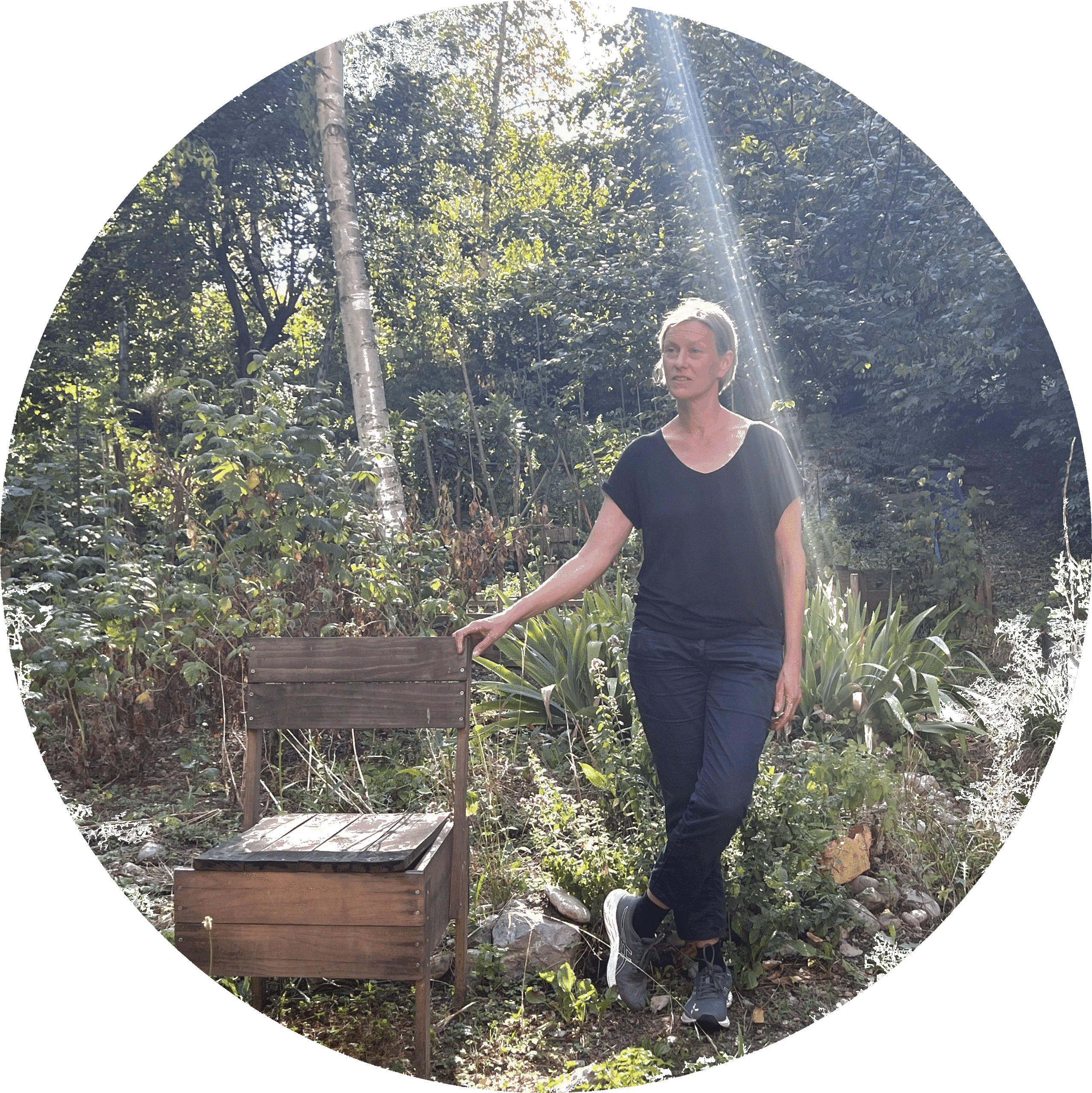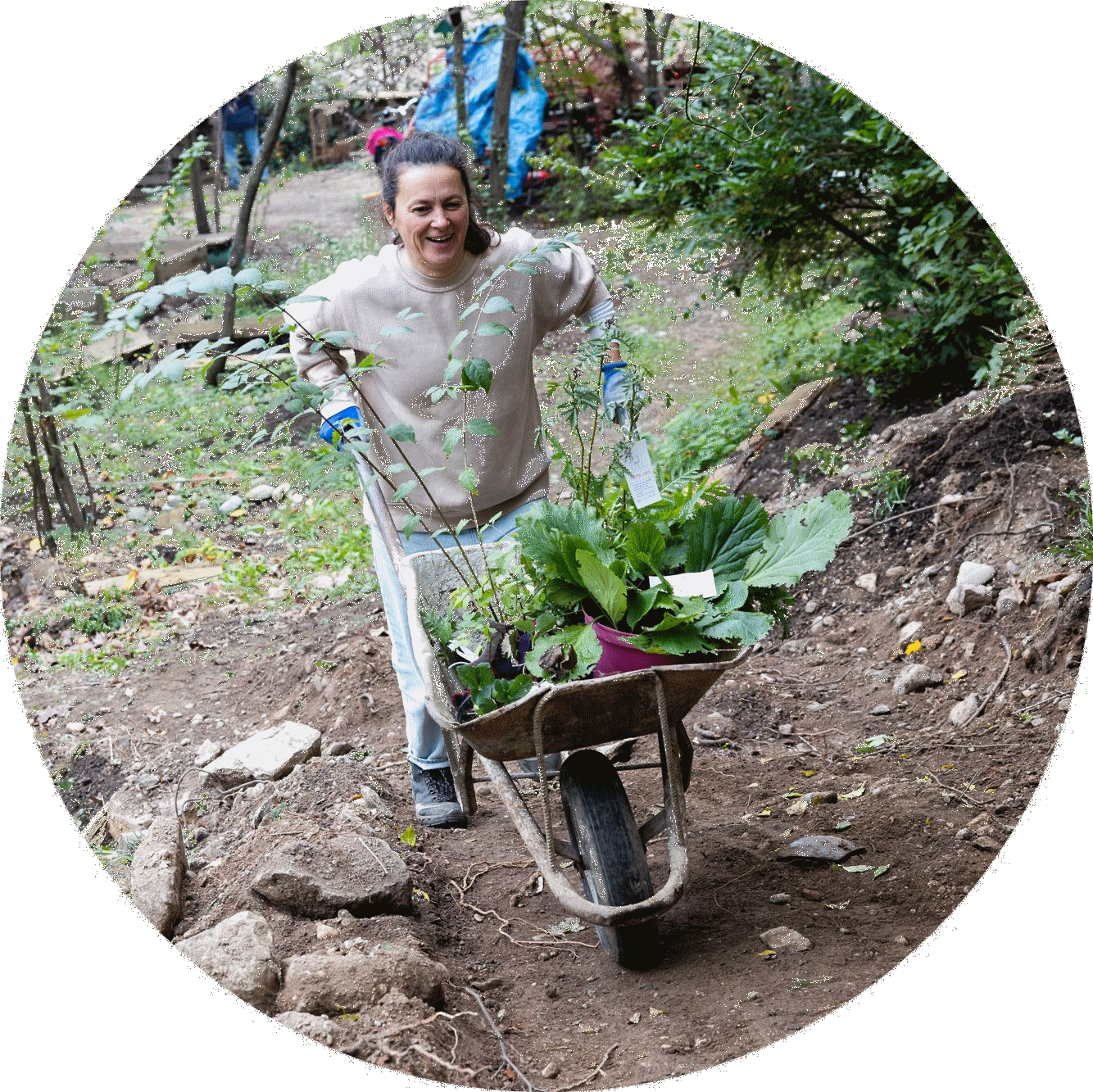TEAM PARTNERS

URŠKA JURMAN is an art historian and a sociologist of culture. She is active as a curator, editor, and writer in contemporary art. Her work intersects art, critical spatial practices, ecology, and active citizenship. She is a co-founder of the Obrat Culture and Art Association, with which she co-authored many projects, including the community garden Beyond a Construction Site (2010–22). In 2021 she co-initiated (with Elke Krasny) the Ecologies of Care working group. Since 2013, she has been the Igor Zabel Association for Culture and Theory program director in Ljubljana.
Dr. MATEJA KURIR is a philosopher, researcher, and editor. She was a visiting researcher at the Department of Architecture, KU Leuven (2015), and a postdoc researcher at the University of Rijeka (2017). Currently, she is the manager of LINA platform. She published Arhitektura moderne in das Unheimiche (2018) and co-edited Garden and Metaphor (2021). As the editor of O oblasti v arhitekturi (On Power in Architecture, 2021), Kurir received the Plečnik’s Medal 2022 in the field of architectural theory, criticism, and publication. Kurir lives in the countryside surrounded by a forest, where she spends her free time walking and researching, as the forest amazes her as a space of calmness and harmony.


POLONCA LOVŠIN (1970) is an architect and artist. In 2015, she completed her doctoral studies in visual arts at the Bauhaus University in Weimar. Her projects are built around small details that reveal complex environmental issues and suggest alternative solutions. She combines disciplines of art, architecture, and political ecology with local knowledge using methods of self-organization and participation. She is a co-founder of the Obrat Culture and Art Association, which, together with neighborhood residents, developed a 12-year-long spatial, ecological, and community experiment, community garden Beyond a Construction Site (Ljubljana, 2010 – 2022).
For a few years now, Lovšin has been focused on forests. She is interested in what humans can learn from the forests. By learning from the forest, humans can change the course of self-destruction and mass extinction (caused by humans) and step into a more-than-human future.
NAYARI CASTILLO is an installation artist, activist, and researcher. She earned a MSc. in European Projects at the PH Joanneum, Graz, AT, and an MFA in Public Art and new artistic strategies at Bauhaus University Weimar. Castillo specializes in art in public spaces, emphasizing site-specific contextual and participative installations. Her interventions deal with time and space and focus on experiments in perception and action. In the past years, she has developed a solid career by working consistently in public space interventions that touch on political topics; feminism, posthumanism, memory, and social engagement are among her obsessions. Castillo has been awarded various prizes, including KUNSTRAUM STEIERMARK Scholarship of the Province of Styria (2021/2022), Working Scholarship of the Province of Styria for Contemporary Art (2019), lime_lab Award for experimental radio production – ORF / steirischer herbst a. o. (2018), best cultural project for the House of Open Gates in cooperation with <rotor> – BKA (2017), Working Scholarship for Visual Arts of the City of Graz (2015), and CIFO Award Miami (2014). She has worked on numerous international art projects developed as an artist, coordinator, and/or curator. She is a research associate at the Institute of Spatial Design at the Graz University of Technology and is actively engaged in social sustainability.


DUŠICA DRAŽIĆ researches the interrelationship of place and its users, rethinks them at the level of cultural continuity, symbolic irregularities and individual actions. She is interested in methods of knowledge production concerning social, political and aesthetic changes. Dušica’s artistic and curatorial hybrid practice contributes to production of public space. Public space that is not a safe space, but rather contested, charged and challenging, open for negotiation.
Dušica grew up together with Forest that was planted by thousands of young people from all over the Socialist Federal Republic of Yugoslavia who volunteered for reforestation of the karst Pešter plateau in the South-West of Serbia. Every summer between 1973 and 1988 the labour was organised through Youth Work Actions, bringing new generations together. Her late father, Milutin Dražić, was the leading forest engineer of this project.
More info: www.dusicadrazic.com